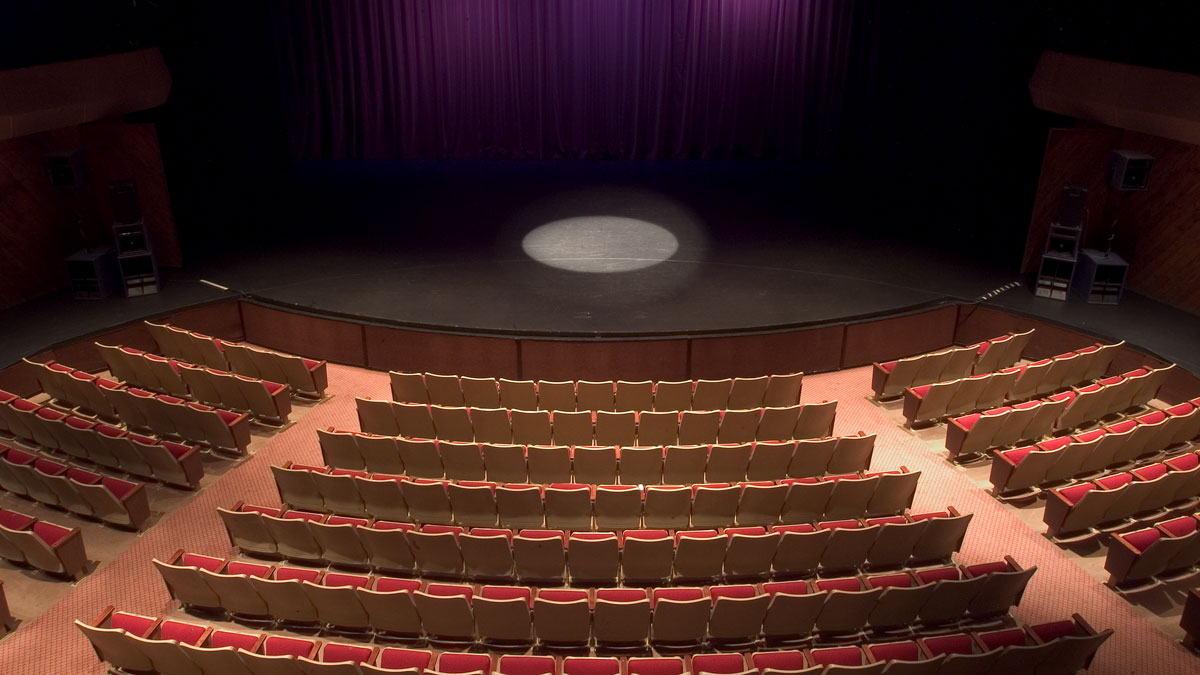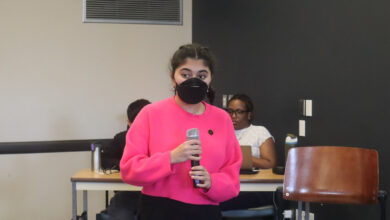 Supplied
SuppliedOn December 1st, Students’ Council will vote on whether to use the Sustainability and Capital Fund to renovate the Myer Horowitz Theatre, a project estimated to cost $17.5 million.
The renovation has arguably been the primary goal of the Students’ Union (SU) over the past four years and, as such, the vote promises to be a pivotal moment in the development of our campus community.
However, after four years and multiple updates about the project, there are still many outstanding questions about whether the costly renovation is truly to the benefit of students.
The underlying rationale for the Myer Horowitz renovation has largely remained the same since the project was first proposed in June 2016. Since the theatre hasn’t been renovated since 1983, many of the furnishings and technology within the theatre has become outdated. By renovating and expanding the space, the SU hopes to make the Hyer Horowitz more attractive for student groups and external clients to rent.
Ultimately, advocates of the renovation argue this will achieve two goals. First, the renovation proposal promises to create a campus community hub — a place where students from across different faculties can come together to hold events for a low cost. The second goal is to diversify the SU’s revenue streams and decrease their reliance on student fees, as some believe a newly renovated theatre will attract more third parties to rent the Myer Horowitz.
Overall, the goals themselves aren’t bad. The pandemic has highlighted the importance of our campus community and that students must get value from our fees. Yet, when we look closer at the details, it’s questionable if renovating the Myer Horowitz truly achieves these goals.
First, I remain unconvinced that student groups will be inclined to use a newly-renovated theatre for events. Currently, the Myer Horowitz is primarily used by external groups rather than by students. In fact, student events only comprised 36 per cent of the theatre’s event days in 2019. I see few reasons to believe that a renovation will change this.
To be fair, advocates of the project do recognize this is an issue. In order to try and attract more student groups, the SU hopes to offer lower rates for student events and will explore new forms of partnerships for student groups, such as a “revenue-sharing” model. The details of this model are still to be developed.
Still, I struggle to see the plan drawing students to the theatre. It’s unclear why student groups — who are often short on cash — would pay money to rent the theatre, even at a lower cost, when there are alternative venues on campus that are cheaper or outright free. Even if the theatre is a much nicer space, we’re university students: if we can get something for free, that’s the path we’ll usually take.
Beyond this, a renovation does not necessarily guarantee an increase in revenue. Newer seats, better technology, and a larger lobby will make the theatre undoubtedly better. At the end of the day, however, the Myer Horowitz still has to compete with many other high-end event spaces in Edmonton, including University’s own Lister Centre and Timms Centre on campus. If the SU is serious about pursuing this renovation, there should be reliable estimates over how much profit a renovated Myer Horowitz could expect to raise.
This is especially important when we look at the Myer Horowitz’s current profits. According to the latest audited financial statements on the SU’s website, the theatre made a revenue of roughly half a million dollars in 2018. However, factoring in operating expenses, the Myer Horowitz made a net profit of just over $64,000 that year. Since the renovation costs $17.5 million, it’s important to at least estimate how much profit we could expect from a new theatre.
Given these factors, the Students’ Council should strongly reconsider whether or not this expensive renovation will achieve its intended goals. I understand the appeal of the project — I’d love to have a space where students can come together as a community that also raises money. However, unless more details are presented, we cannot say with reasonable certainty that a renovated Myer Horowitz theatre is this ideal space.
Instead, here’s what we can say with certainty about the project. First, the renovation’s price tag has continuously gone up since it was first proposed in 2016. Initially, the project was estimated to cost $11 million and $9.5 million was supposed to be raised through alternative funding sources, such as grants or donations. As such, the SU would’ve only financed $1.5 million of the project — still not cheap but not an outrageous amount.
Four years later and the latest proposal bears little financial resemblance to the original. According to a presentation on November 23, 2020 the entire project now costs $17.5 million and the SU only estimates to gain $1.3 to $4.7 million in alternative funding. This leaves the SU with a bill of around $12.9 to $16.2 million — above eight times the amount they expected to pay in 2016.
The only other certainty is that the SU has struggled to get students on board with the project. This is best seen through the Student Events Initiative (SEI). The SEI would’ve charged students a fee of $8.50 a semester in order to finance the renovation, alongside a few other grants for student groups. However, the campus community rejected the SEI in a referendum, effectively killing the proposal. The SU then tried to gain funding for the process again through the Student Spaces Levy, a similar fee. Yet, it was decisively defeated at Students’ Council before it could go to referendum, as councillors felt that they didn’t have enough time to evaluate the proposal.
The SU finally succeeded in achieving new revenue sources last year, when the Sustainability and Capital Fund (SCF) passed a student referdrum. However, the SCF wasn’t a referendum about renovating the Myer Horowitz. The SCF was about creating a fund for projects which address environmental and economic sustainability issues, such as climate change and deferred maintenance. While the Myer Horowitz renovation might arguably fall into this category, no one should mistake the SCF referendum as students pledging their support for the renovation.
Looking at the evolution of the project, SU representatives need to seriously ask themselves whether the Myer Horowitz renovation will serve the needs of students.
Students expect to get value from their fees. If Students’ Council decides to fund the costly Myer Horowitz theatre renovation project, they better be sure students see value in the project and that the project will undoubtedly deliver on its promised outcomes. Given the questions left unanswered over the past four years, I’m not sure any student representative can be certain it does.




